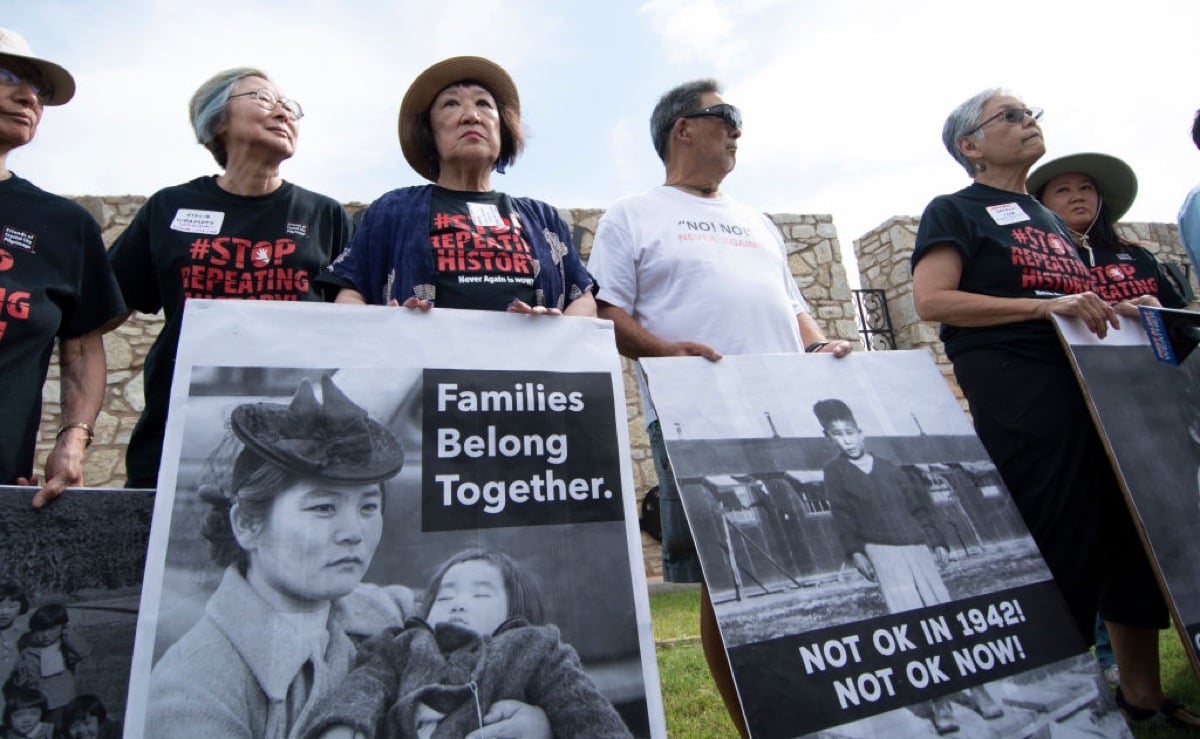Good lord, the publishing industry is certainly having a moment right now. Between strikes, walkouts, and callouts, you’d think that by now, they would have gotten the message that listening to their clients and being sensitive to cultural shifts would be the smartest move.
Evidently, they have yet to fully digest this, as showcased by Scholastic’s latest offensive blunder. As part of their latest collection, “Rising Voices: Amplifying AANHPI Narratives,” they’ve been in the process of licensing author Maggie Tokuda-Hall’s latest work, Love in the Library. Obviously, anyone would be thrilled for this opportunity, so Maggie was initially fully on board.
However, Tokuda-Hall said they wanted to make a crucial change to her Author’s Note section. They wanted to omit this one paragraph entirely:
As much as I would hope this would be a story of a distant past, it is not. It’s very much the story of America here and now. The racism that put my grandparents into Minidoka is the same hate that keeps children in cages on our border. It’s the myth of white supremacy that brought slavery to our past and allows the police to murder Black people in our present. It’s the same fear that brings Muslim bans. It’s the same contempt that creates voter suppression, medical apartheid, and food deserts. The same cruelty that carved reservations out of stolen, sovereign land, that paved the trail of tears. Hate is not a virus; it is an American tradition.
Maggie Tokuda-Hall, Love in the Library, Author’s Note
As well as this, she said the publisher asked for the word “racism” to be removed from the note altogether. When asked whether or not this was a deal-breaker, the publisher told Tokuda-Hall that they would not proceed with her book if she did not make these changes. This is so garishly inappropriate for a publisher to ask of their client, especially considering the collection is supposedly designed to amplify AANHPI voices.
Indeed, Tokuda-Hall went on to succinctly identify this move on Scholastic’s part as an attempt to sell POC voices to white readers in a way that’s palatable and assuages feelings of white guilt. In her blog post about the incident, she wrote, “Always, our voices are the first sacrifice at the altar of marketability.”
In the end, after debating back and forth between keeping her head down and taking the money, or potentially jeopardizing her career by making a statement, she decided to make a statement. She turned down the offer with a powerful letter before bringing the issue to attention on social media. Since then, many have rallied behind her (including us!) for highlighting just how quickly the industry is willing to shut down authentic Asian stories for the sake of marketability.
And in the end, this truly proved to be the best course of action, since Scholastic themselves were pressured to respond and are now allegedly in the process of “reviewing” their terms. But it’s a shame that it took this much stress, frustration, and heartache for them to understand that their actions were hurtful.
Two tweets on her page sum it up beautifully:
“Asian Exceptionalism” is not a real thing; it’s just a tool used to maintain systems that keep white people in power. Anti-Asian racism is still heavily prevalent, and in any case, race isn’t, has never been, and will never be a real indicator of a person’s life trajectory. It is consistently infuriating that the Powers That Be (in this case, the publishing industry, but really any American industry at large applies here) are so insistent that the Asian narrative is some squeaky-clean, easily marketable thing, when Asian American history is, in totality, worthy of much more critical analysis.
We need stories like Love in the Library to authentically represent this history, and from the perspective of someone with a tangible connection to these histories. And we need these histories to be told accurately, with no sanitization, or else we lose the potential to properly learn, and heal, from past mistakes.
Japanese Americans deserve to have their stories told without fear of being censored for “palatability,” and they deserve the catharsis of proper retribution. The internment camps were horrific; any attempts to deny their place in American history are shameful. Tokuda-Hall was eloquent and precise in her summation of this time in history, and her story deserves to be shared without any subsumption.
If you or someone you know is an author with dealings with Scholastic, you can sign this letter here for further action:
(featured image: J Pat Carter/Getty Images)










Published: Apr 14, 2023 05:14 pm